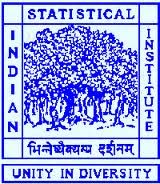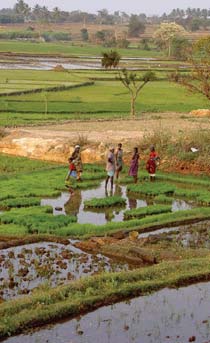/topics/society-culture-religion-and-history
Society, Culture, Religion and History
Communal toilets in urban poverty pockets - A WaterAid report
Posted on 02 Sep, 2011 12:39 PMThis report published by WaterAid describes the findings of the study conducted in seven poverty pockets in Bhopal to look at patterns of use of communal latrine facilities. Much has been invested in building communal and public toilets and more resources are likely to continue to support this form of sanitation in dense urban areas in India.
However, there is no evidence available that is needed to quantify their potential contribution to reducing open defecation and faecal pollution in these environments, and identify those design features and management factors that encourage the highest usage rates by all household members. Also there is no information available on the impact of age and gender related differences in patterns of use.
Course on basic research methodology, Indian Social Institute, September 13 -18 2011, Bangalore
Posted on 01 Sep, 2011 11:57 AM
Organiser: Indian Social Institute
Venue: Bangalore
Description:
Indian Social Institute, Bangalore is organising a Course on Basic Research Methodology for Advocacy and Lobbying for NGOs and CBOs, Leaders of Peoples’ Movements, Young Scholars and PG Students. Though the importance of research is understood by those who are in the field of development and academics, there are very few courses that are available for them. This course aims at filling such a gap.
Tribal movements and livelihoods – Recent developments in Orissa – A working paper by CPRC-IIPA
Posted on 31 Aug, 2011 08:48 PMFor the last few decades and more particularly since 1990’s the issue of human rights-violation of rights to life and livelihood of tribal peoples’ is a central concern. Therefore, the discourse on tribal movements and issues of tribal livelihood revolved around securing their well-defined rights on land and forest resources.
Integrated approach to solid waste management in Pune city – A working paper in MPRA
Posted on 31 Aug, 2011 07:02 PMSolid waste is increasing in the city due to growth of population, urbanization, higher per capita income and standard of living, changing lifestyle and food habits.
The first section of the paper explains about the structure of the solid waste in the city. The solid waste according to its constituents is presented in the second section. The third section of the paper explains about the regression result. The last section deals with the policy implication and conclusion.
Social equity and integrated water resources management – A background paper by Global Water Partnership
Posted on 31 Aug, 2011 04:10 PMIt provides an analytical framework that policy makers and water professionals can use to bring greater clarity to the issue of social equity in their local context.
Sowing Seeds 2011 invites artist & critics for international village residency at Rajasthan – Apply by September 30, 2011
Posted on 30 Aug, 2011 08:53 AM

Kaman Art Foundation’s aim is to identify, promote and celebrate the community's artistic and cultural identity and support community-based festivals, exchanges and events, as well as to bring to the community the art and culture of other communities in order to broaden their experiences and appreciation of the artist.
Adaptive water resource management in the Lower Bhavani project command area in Tamil Nadu – A research report by IWMI
Posted on 25 Aug, 2011 11:07 PM
To what extent farmers and water resource managers already practice adaptive management and whether it is practiced in an optimal manner or could there be areas for improvement based on recent advancements in the theory of adaptive management are some of the questions that are particularly appropriate in the light of rapid changes in river basin water use and also in relation to basin closure.
This paper draws on the development and use of water resources in the Lower Bhavani Project (LBP), with the LBP reservoir and the 84,000 hectare (ha) LBP command area. The project diverts water from the Bhavani River, a tributary of the Cauvery River in Tamil Nadu.
Boundary concepts for interdisciplinary analysis of irrigation water management – A working paper by Peter Mollinga
Posted on 24 Aug, 2011 07:16 PMThe focus is concepts that capture the hybridity of irrigation systems as complex systems, and cross the boundaries of the natural and social sciences.
The relevance of traditional knowledge for health, well being and sustainable development - Indian Journal of Traditional Knowledge
Posted on 22 Aug, 2011 12:27 PMThis paper published in the journal Indian Journal of Traditional Knowledge is an attempt to discuss the traditional knowledge of elderly people, their role and highlights many areas w
Plants used as agricultural seasons indicator by Mao Naga tribe - Manipur (India) - Indian Journal of Traditional Knowledge
Posted on 21 Aug, 2011 07:38 PMAgriculture is the main occupation of the tribe and they have a unique way of knowing plantation season for different crops by observing the flowering of some plants. The indicator plants are peach, wild cherry, camel foot and dancing girl.





